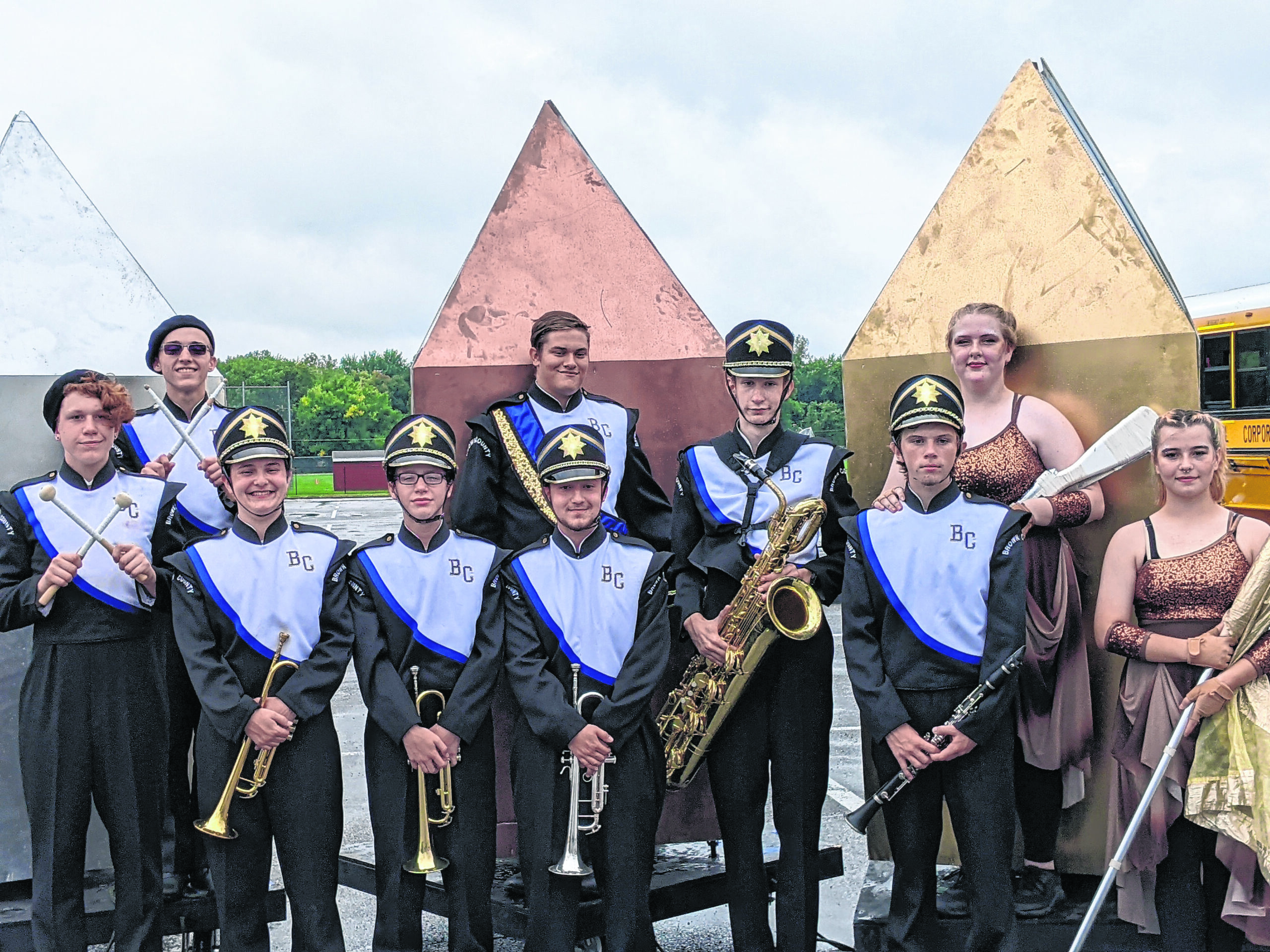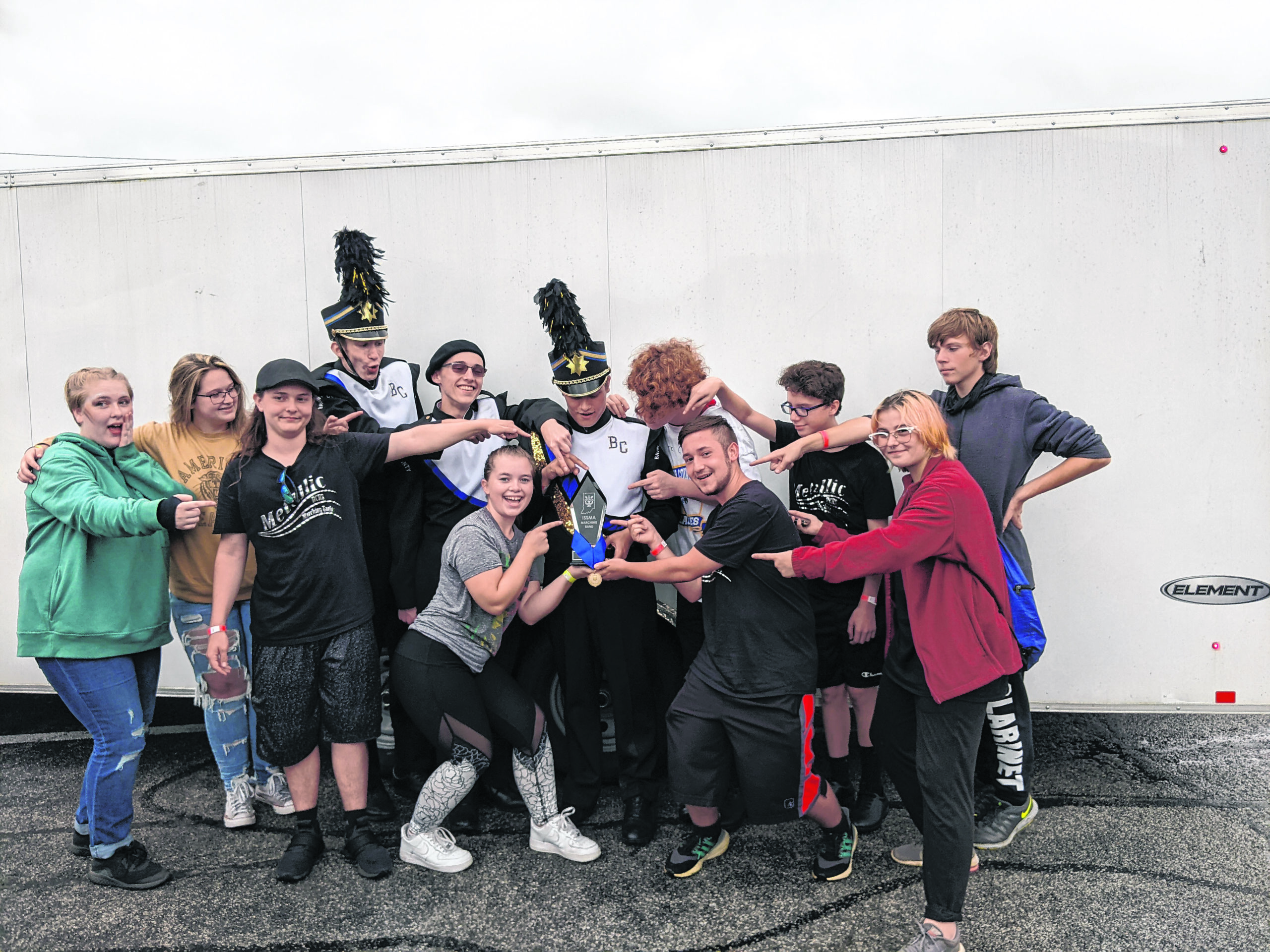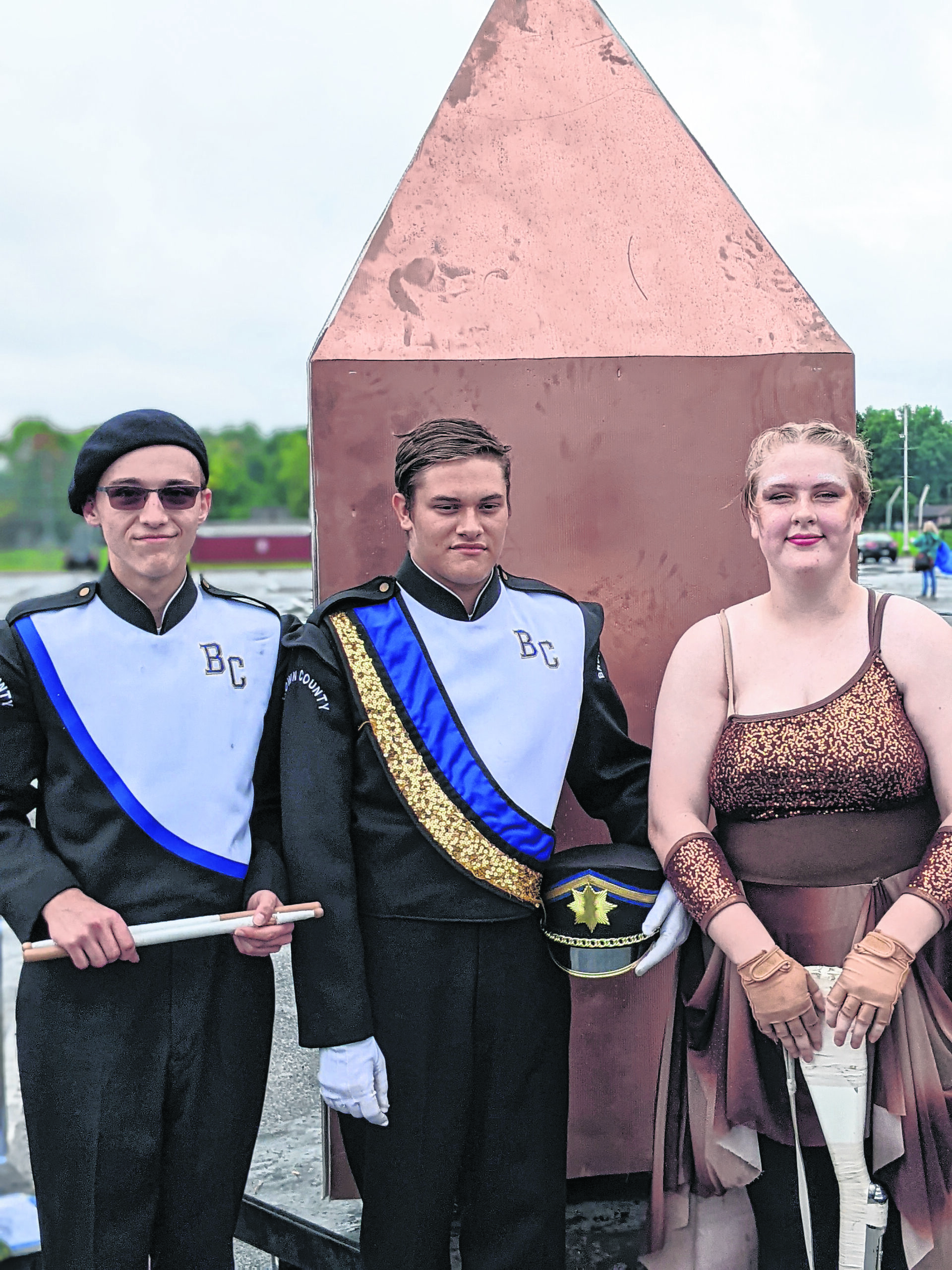At the start of the pandemic, many groups and organizations found themselves adjusting to pandemic procedures last year, working together to overcome new challenges.
Now a new normal is being established and a return to pre-pandemic life is being rebuilt.
One of those who has faced and overcome difficult challenges is the marching band at the Brown County High School.
The group that was once close to 30 people strong had only 10 participants in the summer and fall of 2021.
Despite low numbers, they measured up to larger bands at competitions.
Matthew Finley is the director of bands at Brown County High School and Middle School. He said the pandemic had a big effect on what the group has been able to do, their morale and motivation.
Compared to last year, however, Finley said that they’ve come “leaps and bounds” in improvement from what they did not have.
“We’re not back to 100 percent normal, but there’s a big improvement in every way,” he said. “In excitement, morale and pride in what we have done so far.”
This is Finley’s fifth year as band director.
Now they’re in the process of preparing for winter concerts and winter guard. The program itself has 23 or so students in band class. Finley said that some students are scheduled to take up band in the second trimester.
Tristen Shields, Nathan Riggle and Kelli Branson are all seniors in band who have been involved since they were in middle school.
Shields and Riggle are in the percussion section, Branson is in color guard and played flute until two years ago.
Each have adjusted in band during the pandemic in different ways.
For Shields and Riggle, those adjustments have not been that challenging since they are in the percussion section, they said.
Woodwinds and brass, however, had to play with masks and trash bags over the instruments.
Shields said in switching to trimesters, band did not fit into many students’ schedules. He himself had to sit out two trimesters.
Shields’ brother is a freshman and will join the band in the second trimester, he said.
When marching band was not able to happen last year because of competitions being canceled, the group did pep band instead. Branson said that she had missed her friends, so being able to do pep band allowed them to be with each other, which she said is the best part about marching band.
The students noticed at competitions that other bands had also had a decline in numbers. Every year, they will continue to get closer to pre-pandemic levels, Finley said.
“We had about 45 to 50 people every year up until 2020,” he said. “Then it was about 25 that first trimester, people shuffled in and out. In the fall of 2019 we had just under 30. This year we ended the season with 10.”
That decrease is attributed to a few different things, he said.
“When you take away being able to do performances, being able to play in class, when they’re split up or spread out, you lose the spirit of (band),” he said.
“It’s about making music and performing, but it’s also about being close to a group and being a part of something. When you can’t be a part of something, it takes away the drive.”
The camaraderie is a big reason why people choose to participate, Finley said.
“With time and continued improvement on how things are working, things will improve,” he said. “It just takes time. It definitely rebounds slowly.”
Community, friendships
Playing instruments and performing is merely one facet of being in band, Branson said.
“(Performing) is an extremely fun part of it because you get to show what you’ve done,” she said.
“But a huge part of it is the community and friendships you build.”
That community is what pushed her to keep participating through the difficult adjustments that the pandemic caused. Her mother and fellow students reminded her why she joined in the first place.
“It’s not just about the number of people or act of people performing, but it’s the journey along the way, and the memories you make doing it,” she said.
Shields said it is more about the experience as a whole than just performing and competing.
“When I think of marching band, I think of all the fun things,” he said. “Like gathering fast food trays after competitions, all the inside jokes, hours spent practicing, joking around — just all the fun in band.”
Shields said that joining marching band between his eighth grade and freshman year was a good transition into high school.
Riggle moved to Brown County from South Vermilion in the middle of the pandemic and did not know anyone at the high school. Marching band helped him to connect with people, he said.
‘An underdog story’
The seniors agreed that the low numbers at the beginning of the season made them each nervous, unsure that they’d have enough people to round out their sounds for competition.
By the time competitions were over, they’d received encouraging feedback from other groups and people.
First, the marching band performed at a competition at Brownsburg High School. They won first place in their class by default because the other band didn’t show up to compete.
“We were still proud,” Finley said. “We went out there and performed and heard great feedback.”
They were the smallest group by a large margin, but good feedback was a trend that continued throughout their performance circuit, he said.
At the Ben Davis High School competition, they were fourth overall out of five groups. They also won first place in color guard, a category in which they had to members.
“Other groups had like 10,” Finley said. “I think it’s a testament to how hard they’ve worked.”
The festival performance that closed out their season was at Southport High School.
Branson and one other student were the only participants in color guard this year.
They’d started the season without a guard director, so Branson would teach the choreography to herself and the other guard member.
“It was really hard, emotionally draining, stressful,” she said.
Then they found a director who helped them get everything up and going. They won first place with guard, in visual distinction.
“It was really an underdog story,” she said.
Other bands told them that the band sounded like they had 50 woodwinds, Shields said.
After the competition, a man handing out awards at the competition stopped the small group and offered an encouraging word.
“I’ve heard a lot of small marching bands and your performance was the best one I’ve ever seen,” he told them.
“That made it all worth it,” Shields said. “We really did the best we could.”
“It really tied in the season,” Riggle said.
Finley said it was easy at the beginning of the season to look at the group and assume they wouldn’t be able to do anything.
After the comment from the man who Finley said was basically in charge of managing the festival, it was a testament to their group.
“Being a small group doesn’t necessarily mean you can’t be a good group,” he said. “They’re not mutually exclusive.”
Finley added that in a large band, a performer could be handed an instrument, not play it and no one would be able to tell.
With Brown County’s marching band of 10, it’d be easy to know if someone was not playing their part.
“It required each one of the people performing to know their part,” he said. “Each person is responsible for 10 percent of the production.”
The marching band’s motto is: Every member, every note, every step, every time.
“We can only be the best we can be when we have everyone giving their best on every note we play, every single time,” Finley said.







